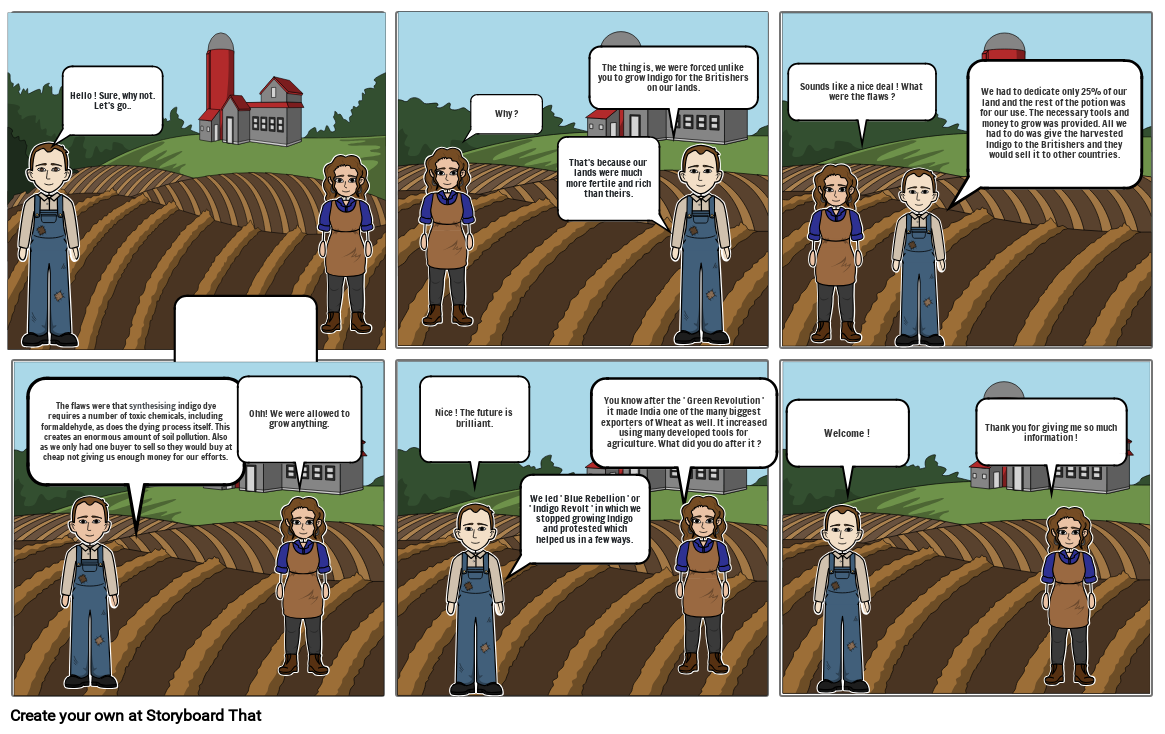Comparing between modern day farmers and indigo farmers

Montāžas Teksta
- Slidkalniņš: 1
- Hello ! Sure, why not. Let's go..
- Slidkalniņš: 2
- The thing is, we were forced unlike you to grow Indigo for the Britishers on our lands.
- Why ?
- That's because our lands were much more fertile and rich than theirs.
- Slidkalniņš: 3
- We had to dedicate only 25% of our land and the rest of the potion was for our use. The necessary tools and money to grow was provided. All we had to do was give the harvested Indigo to the Britishers and they would sell it to other countries.
- Sounds like a nice deal ! What were the flaws ?
- Slidkalniņš: 4
- Hello! I am modern-day farmer. Can you show me the difference between your age farming and mine ?
- Ohh! We were allowed to grow anything.
- The flaws were that synthesising indigo dye requires a number of toxic chemicals, including formaldehyde, as does the dying process itself. This creates an enormous amount of soil pollution. Also as we only had one buyer to sell so they would buy at cheap not giving us enough money for our efforts.
- Slidkalniņš: 5
- Nice ! The future is brilliant.
- You know after the ' Green Revolution ' it made India one of the many biggest exporters of Wheat as well. It increased using many developed tools for agriculture. What did you do after it ?
- We led ' Blue Rebellion ' or ' Indigo Revolt ' in which we stopped growing Indigo and protested which helped us in a few ways.
- Slidkalniņš: 6
- Thank you for giving me so much information !
- Welcome !
Izveidoti vairāk nekā 30 miljoni stāstu shēmu

